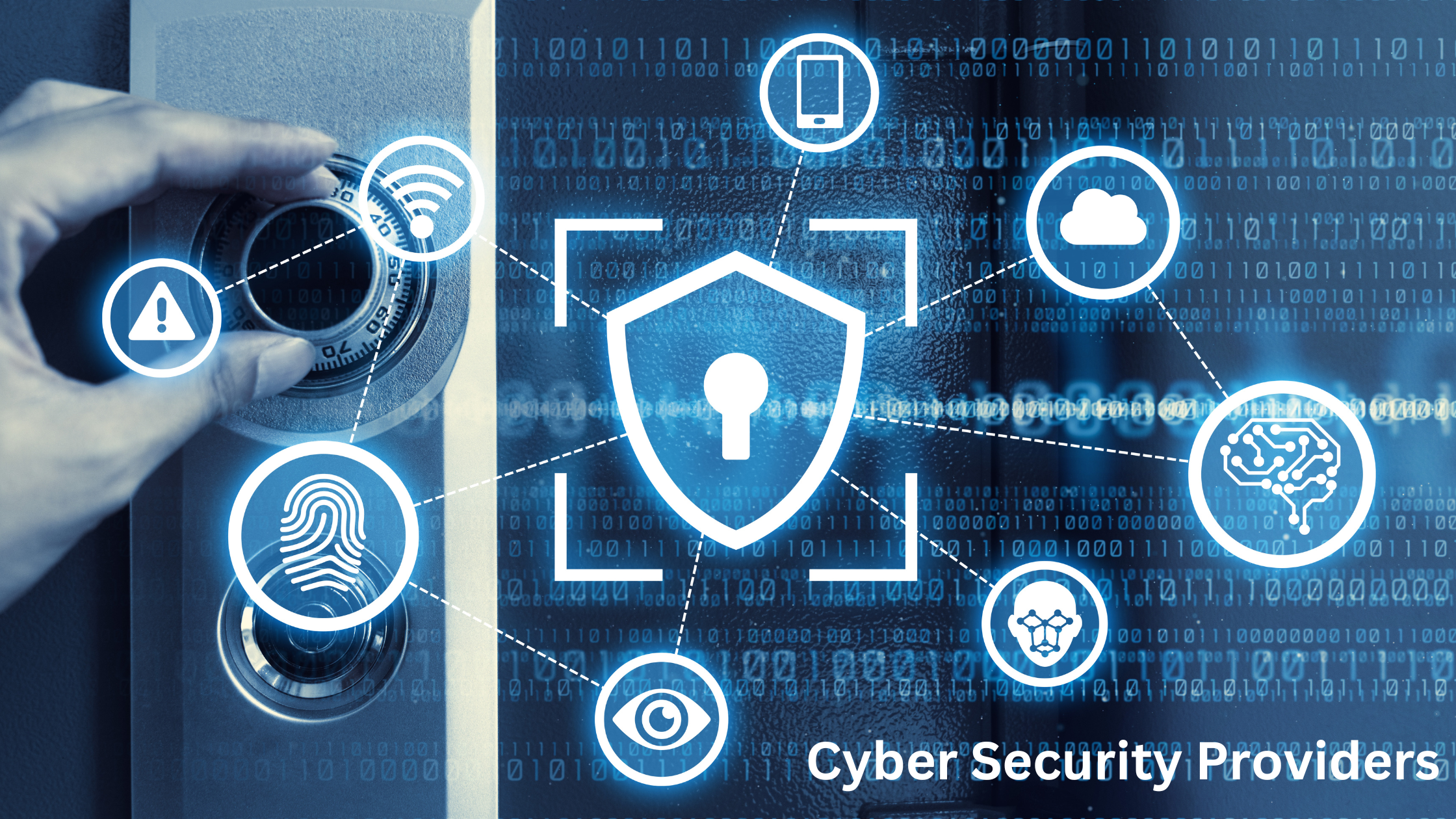How Encryption Empowers Cybersecurity to Enhance Data Security
In the ever-evolving landscape of the digital world, where data is the currency and information is the key, the importance of cybersecurity cannot be overstated. As technology advances, so do the threats and vulnerabilities that lurk in the shadows of the internet. In this era of interconnectedness, securing sensitive information has become a paramount concern for individuals, businesses, and governments alike. One of the most potent tools in the cybersecurity arsenal is encryption, a robust mechanism that not only safeguards data but also fortifies the digital realm against malicious actors.
Understanding Encryption: A Digital Bastion
At its core, encryption is a process of converting plaintext information into an unreadable format, known as ciphertext, through the use of algorithms and cryptographic keys. This transformation ensures that even if unauthorized entities gain access to the encrypted data, they are unable to decipher it without the corresponding decryption key. This intricate dance between encryption and decryption forms the bedrock of data security.
Enhancing Data Security: The Encryption Advantage
1. Robust Confidentiality
Encryption provides a formidable layer of confidentiality, ensuring that sensitive data remains private and secure. Whether it’s personal information, financial records, or classified business data, encryption acts as a digital vault, safeguarding against unauthorized access and potential misuse. This confidentiality extends not only during data transmission but also when data is at rest, stored on servers or devices.
2. Mitigating Unauthorized Access
As cyber threats continue to grow in sophistication, preventing unauthorized access to data becomes increasingly challenging. Encryption acts as a gatekeeper, thwarting the efforts of cybercriminals attempting to breach security barriers. Even if a hacker manages to infiltrate a system, the encrypted data remains a cryptic puzzle without the decryption key, rendering it useless to the unauthorized user.
3. Regulatory Compliance
In an era of stringent data protection regulations, compliance has become a critical aspect of business operations. Encryption not only helps organizations meet regulatory requirements but also fosters trust among customers and partners. Whether it’s the General Data Protection Regulation (GDPR), Health Insurance Portability and Accountability Act (HIPAA), or other industry-specific mandates, encryption is a key component in the toolkit for maintaining compliance.
4. Shielding Against Insider Threats
While external threats often take the spotlight, the risk posed by insider threats should not be underestimated. Encryption neutralizes the potential damage caused by disgruntled employees, unintentional data leaks, or other internal vulnerabilities. By encrypting sensitive information, organizations can restrict access and control who can view or modify data, reducing the risk of insider malfeasance.
5. Secure Communication Channels
Encryption plays a pivotal role in securing communication channels, especially in the era of remote work and global connectivity. Virtual Private Networks (VPNs) use encryption to create secure tunnels, ensuring that sensitive data transmitted over the internet remains confidential. This is particularly crucial for businesses handling proprietary information, trade secrets, or sensitive communications between employees.
6. Data Integrity Assurance
Beyond confidentiality, encryption also contributes to data integrity by preventing unauthorized modification during transmission or storage. When data is encrypted, any attempt to tamper with it will result in a loss of coherence, alerting the system to potential malicious activity. This ensures that the information received is exactly as intended, without any alterations or manipulations.
7. Protection Against Ransomware
The rise of ransomware attacks has underscored the importance of encryption in protecting data from unauthorised encryption attempts. By encrypting critical files and databases preemptively, organisations can thwart the attempts of ransomware attackers to lock down valuable information. In the event of an attack, having encrypted backups ensures that organisations can recover their data without succumbing to extortion demands.
8. User Authentication and Access Control
Encryption is instrumental in user authentication processes, safeguarding login credentials and personal information. Multi-factor authentication, often coupled with encryption, adds an extra layer of security by requiring multiple forms of verification before granting access. Additionally, encryption facilitates granular access controls, allowing organizations to specify who can access certain data, further minimizing the risk of unauthorized entry.
9. Preservation of Privacy
Individuals are increasingly concerned about the privacy of their digital activities. Encryption plays a crucial role in preserving user privacy by securing communications, personal data, and online transactions. This is particularly significant in an age where data breaches and privacy infringements have become more prevalent, emphasizing the need for robust encryption measures to protect user information.
10. Cloud Security Enhancement
With the widespread adoption of cloud services, the security of data stored in the cloud has become a paramount concern. Encryption ensures that data remains secure even when stored on third-party servers. Cloud providers often implement encryption-at-rest and in-transit to bolster the overall security of the data entrusted to their platforms.
Ethical Hacking: A Crucial Ally in Encryption Implementation
In the pursuit of fortifying digital fortresses, ethical hacking emerges as a critical ally. Ethical hackers, also known as white-hat hackers, leverage their expertise to identify vulnerabilities within a system before malicious actors can exploit them. Their role is instrumental in ensuring that encryption protocols are implemented effectively and that no weak links exist in the cybersecurity chain.
By simulating real-world cyber threats, ethical hackers help organizations identify potential weaknesses in their encryption infrastructure. This proactive approach allows for preemptive measures to strengthen security, patch vulnerabilities, and enhance overall resilience. Ethical hacking serves as a litmus test for the efficacy of encryption measures, providing valuable insights that contribute to an organization’s cybersecurity posture.
Challenges and Innovations in Encryption Technology
While encryption stands tall as a stalwart defender of data security, the landscape is not without its challenges. The exponential growth of computing power poses a potential threat to traditional encryption methods. As technology evolves, so must encryption protocols. Quantum computing, with its unparalleled processing capabilities, presents a looming challenge to current encryption standards.
In response to these challenges, researchers and cybersecurity experts are at the forefront of developing post-quantum encryption algorithms. These cutting-edge cryptographic methods aim to withstand the computational prowess of quantum computers, ensuring that the security of encrypted data remains robust in the face of emerging technologies.
Conclusion
In the dynamic and interconnected world of the internet, where information travels at the speed of light, the need for robust cybersecurity measures has never been more pressing. Encryption, with its ability to enhance data security, stands as a beacon of resilience in the face of evolving cyber threats.
By fortifying confidentiality, mitigating unauthorised access, ensuring regulatory compliance, and shielding against insider threats, encryption plays a pivotal role in the protection of sensitive information. Ethical hacking, in tandem with encryption, provides a comprehensive approach to identifying and addressing vulnerabilities, ensuring that cybersecurity measures remain effective and adaptive.
As we navigate the digital landscape, the synergy between encryption and cybersecurity becomes paramount. Embracing the challenges posed by emerging technologies, innovating encryption protocols, and fostering a culture of proactive cybersecurity are essential steps toward creating a resilient digital ecosystem. In the ever-escalating battle between cyber defenders and adversaries, encryption emerges as a formidable sword, safeguarding the integrity and confidentiality of the digital realm.







